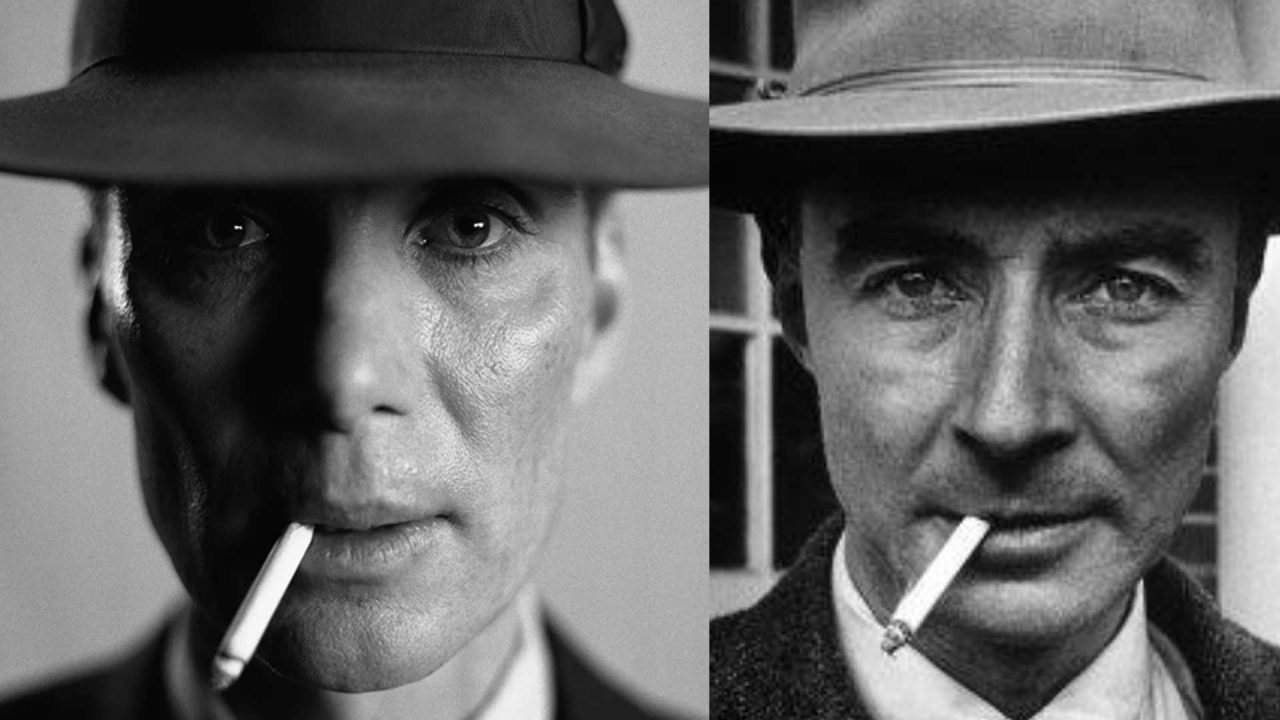
Oppenheimer is a complex and interesting movie. Being a history teacher, the development of the atomic bomb is a difficult yet necessary topic to discuss, but only among older students. I enjoyed no such luxury in 1962. At age 11, I had the Cuban Missile Crisis explained to me perfectly by my older brother. My father was out of town and my mother asked him to perform the chore. Living only 70 miles from Chicago, I was frankly terrified.
The incredible physics involved in the development of the bomb is still hard to imagine. Gun-powder, nitroglycerine and other substances are understandable to a layman as dangerous chemicals, but to smash pieces of hard metal together to produce a chain reaction is not within my limited intellect to envision as an explosive. Dropping a test tube of nitro or lighting a stick of dynamite is easy to see as reckless, but not a piece of volleyball-sized metal.

I wanted to assess how the incredibly complicated personality of J. Robert Oppenheimer would be portrayed. In that regard, the movie was a success. Cillian Murphy will likely win the Oscar for this, and Matt Damon (perhaps) in a supporting role as Gen. Leslie Groves. Oppenheimer was a man who was caught up into the intellectual politics of Marxism, totally outside of his scientifically gifted mind. His support group tried hard to bring him along, but he resisted being a Communist-party member even while he supported their efforts with contributions and union-organizing.
Its sex scenes were unnecessary and irrelevant. Serial infidelity and adultery can be presented and understood without naked bedroom antics. They did not enhance the movie, but rather degraded it. They were mercifully brief, but its second and third portrayals were completely unnecessary.
What we saw in Oppenheimer was a man self-tortured by his own moral life and what he had done to humanity by developing not only the atomic, but also the H-bomb. His efforts to curb the use of atomic energy into non-weapons paralleled his own devotion to creating them, just as an addict cannot control the wave in which he finds himself surfing. A resignation by Oppenheimer would have merely surrendered the role to someone else, and so he found himself trying to mitigate the impact. Like Dr. Frankenstein, he could not.
The movie transfers the audience constantly into flash-backs and flash-forwards, which were made more understandable by using the technique of black-and-white filming. It was not hard to separate the scenes. But what disappointed me was the attempt to make Oppenheimer a victim of Cold War McCarthyism. McCarthy was not portrayed, only briefly mentioned, but the dynamic was evident throughout the Senate hearings that brought Oppenheimer’s loyalty into question. Hollywood just cannot shake itself from its victimhood of the era, even while its own hypocrisy by black-balling conservatives in today’s culture demonstrates an obvious hypocrisy.
ALASKA WATCHMAN DIRECT TO YOUR INBOX
But this victimization of Oppenheimer failed, not only because knowledgeable historians now know that McCarthy was underestimating the number of spies that had infiltrated the U.S., but because the removal of Oppenheimer’s security clearance was eminently justified. It was best summed up in the end when Oppenheimer’s patriotism to America was not questioned, but that he had compromised his trustworthiness by protecting his friends who had tried to compromise him — by not reporting them as outright spies, and protecting them in a misguided loyalty of friendship.
I believe that previous efforts at this topic were better. The 1987 Canadian production Race for the Bomb does a quiet and understated justice, without demonizing the Japanese. The American 1989 TV movie, Day One, is also more worthy. Brian Dennehy and David Strathairn were brilliant as Leslie Groves and Oppenheimer, as was the stellar supporting cast.
Both of these productions have tremendous historical value, remove sex from the story, accurately portray Oppenheimer as a tortured individual, and present both Leo Szilard and Enrico Fermi in far more prominent roles … which today’s Oppenheimer strangely minimizes.
I am glad I saw the movie, if only to show me that its brilliance as a work of art was obvious, if somewhat polluted. It also served to tell me that the other productions were better as a teaching tool for the general public and for today’s young adults.
The views expressed here are those of the author.








5 Comments
…and present both Leo Szilard and Enrico Fermi in far more prominent roles … which today’s Oppenheimer strangely minimizes…
This movie is a biopic about Oppenheimer and follows the book American Prometheus and is not a compressive science/history of the making of the bomb. So there is nothing strange bout not covering Szilard or Fermi in depth.
…removal of Oppenheimer’s security clearance was eminently justified…he had compromised his trustworthiness by protecting his friends…
I’m not sure this is fair…I will never go so far as to snitch on my friends…who wants to live in a country like that? But I thought Oppie had anonymously waned the government about certain people trying to collect info, which I thought a fair compromise.
MASS MURDERER,,,,, Hiroshima and Nagasaki were blooming Christian communities,,,
I assume you mean Truman, who dropped the bombs? It’s a fair point.
BTW, I’m a big supporter of “McCarthyism”. But Oppenheimer was a patriot and a victim Louis Strauss personal animus. And worse, it was Strauss who brought the spy to Los Alamos who then gave the bomb to the Soviets, while Oppie and his boys were clean. Oppie was so motivated and worked so hard he lost like 1/3 of his body weight to build the bomb. And sadly, the unfair treatment of Oppie then drove the public against McCarthyism and weakened our ability to drive communists out of government.
One more thing: the black and white in the movie was not “flashbacks” but rather trying to show a “neutral” or “historical” view, while the color was things as viewed by Oppenheimer. This was a genius way to be fair to all parties and tell the truth as best we know it. Also, another unfair thing is there lacks evidence that Oppenheimer slept around with the girl he dumped to marry his wife. That’s the only ahistorical thing I find here. (the book was unbelievably accurate, and the movie tried very hard, with the black-and-white thing, to tell the true tale…of course, Hollywood couldn’t resist the adultery part, even lacking evidence to support it). But thanks for the review – I’m amazed we finally got a good historical movie that didn’t just cut out all the science and dumb down the history. They don’t make movies like this anymore, and I’m very grateful people are making and talking about this movie. Thanks Bob!